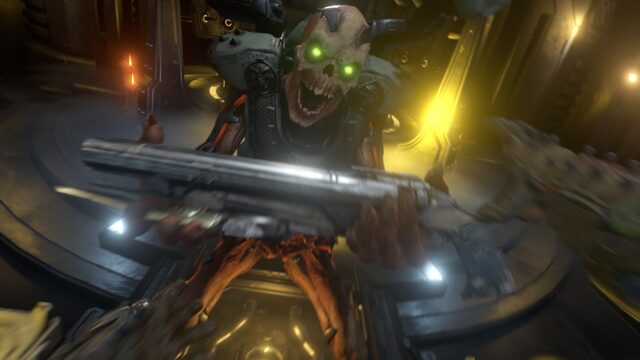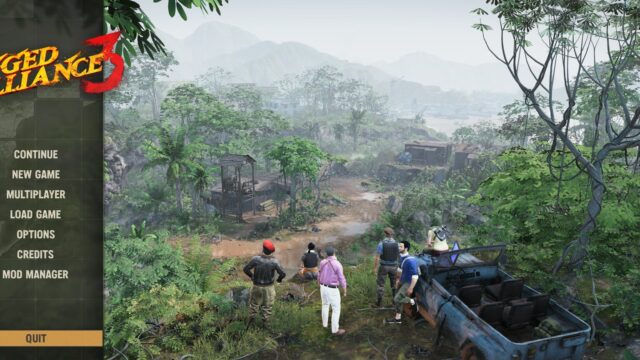Slum Cop – Observer Review
About the fact that the Observer was made by the same people as last year’s. Layers of Fear, it’s not hard to guess: no one in modern gaming shows such love for visionary psychedelia, probably. Bloober Team, for the second time (if you count the DLC), revels in the mental disorders of their characters, telling stories through painful, horrifying images born from a distorted consciousness. Horror for them is spatial hallucinations, blending reality with fiction and fragmented actions bordering on madness.
And the fact that Victorian decorations have been replaced by sparkling neon cyberpunk doesn’t influence the authors’ signature approach as much as one might sometimes wish.

At the sunset of the 21st century, things are, to put it mildly, not going very well in gloomy Poland. The people, who have survived a devastating conflict, find themselves under the control of a huge corporation with questionable moral values and have been divided into classes. Thanks to the local Big Brother, society has become a layered pie of the elite, the middle class, and the dregs, left to drag out their miserable existence in futuristic slums plagued by disease. It is there, in the dirt and colorful false propaganda, that war veterans, former criminals, low-income families, and simply forgotten people live and die under the “upper class”.
And it is there that the long night of Daniel Lazarski, a police neurodetective from Krakow, begins. Driven by his personal investigation, he finds himself in the epicenter of a quarantine zone, cut off from the outside world and face to face with its inhabitants. However, they are by no means aggressive, despite the game’s genre.
In the semi-collapsed residential complex, not everyone is happy to see the detective lurking at the doorstep, but no one poses a direct threat to you here. On the contrary, at each door, you can engage in a fairly lengthy conversation, extracting both useful information for the case and interesting facts about what is happening around. For example, that among the heavily augmented Poles, there are opponents of implants as such, who have retained a deeply religious view of human nature. Or that in the apartment across the hall, a certain doctor secretly grows organs for seriously ill children – and a conspiracy against the current government is brewing just a little further down the corridor. Life is boiling even where there are only the bare minimum conditions for it.
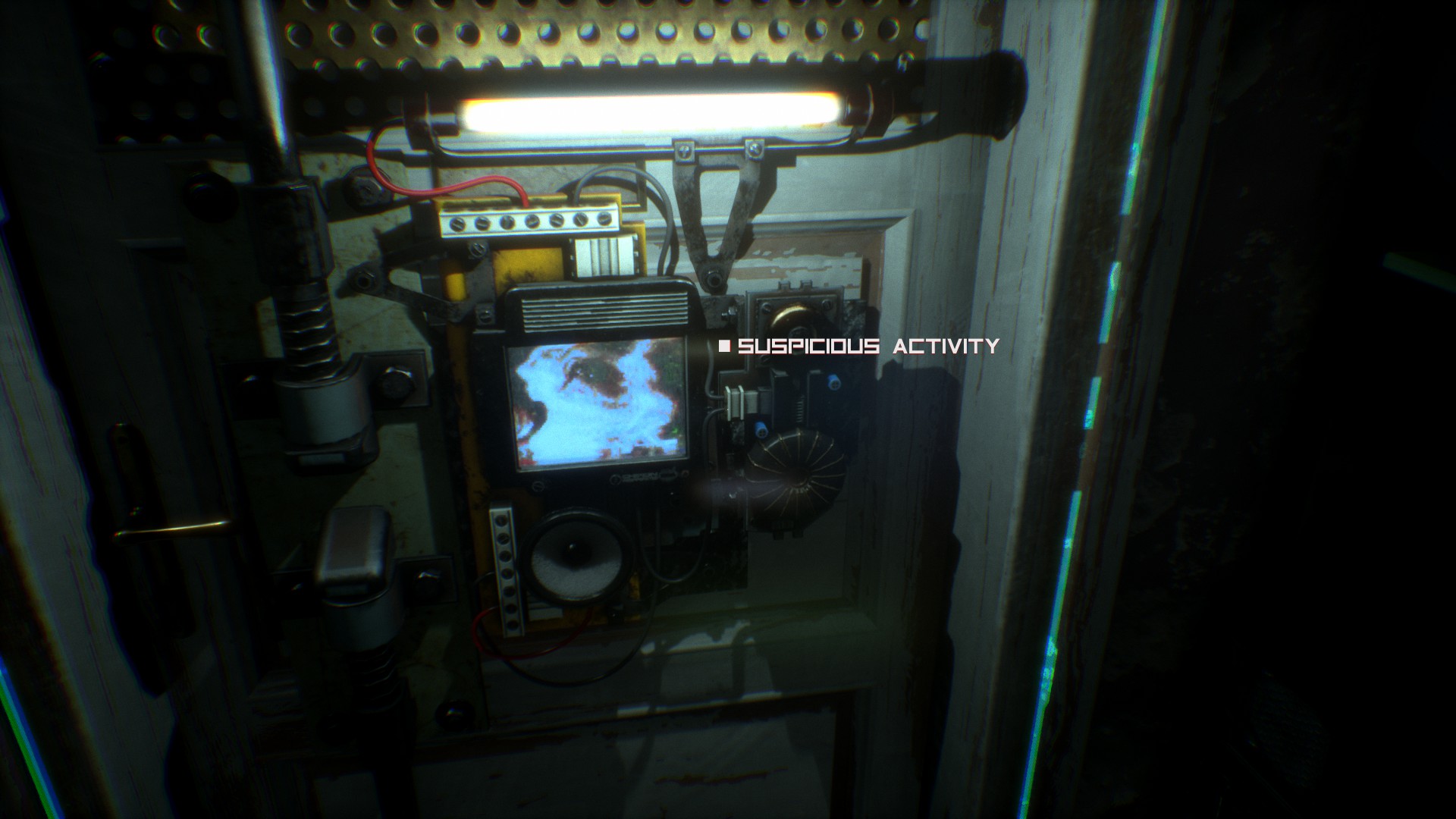
Almost all of your interlocutors prefer to communicate through the intercom.
The open structure of locations allows you to see all of this – perhaps the most notable feature of Observer. Although it’s hard to call the claustrophobic world in which the main character is trapped a truly free one, it does allow for exploration within reasonable limits for such a project, which is extremely useful for proper exposition. Thanks to a number of side quests, there is enough information here to comprehensively answer the most difficult questions, and enough tiny stories to make the player believe in what they see.
However, the price for this pleasure is appropriate. The game often gets tangled in its own script, loses the thread of events, and throws pieces of the plot prematurely. Triggers hidden in tight interiors, for example, often activate without any reason, cutting off entire preceding scenes. It can be quite difficult not to get lost in the intricacies of the narrative because of this.
But Observer really needed this intimate non-linearity. Thanks to it, the game manages to surprisingly concisely reason about many curious and global topics – unlike Layers of Fear, which focused on the classic drama of one person. Now, a whole bouquet of social and moral ailments typical of dystopian canvases is in the crosshairs. Of course, there have already been countless conversations about segregation, corporatocracy, artificial intelligence, detachment, copying, and transferring consciousness – this territory has long been explored and dug much deeper than Bloober Team has delved. However, their words do not feel unnecessary. Rather, they serve as a connection and an update on what brighter minds have warned about.
And in moments when the intellectual aspect prevails over everything else, Observer evokes the strongest emotions. It, like SOMA, it transfers horror into the player’s imagination, allowing them to simmer for hours in a cauldron of thoughts like “what has become of us” – and indulge in the most terrifying fantasies about what will happen to us.
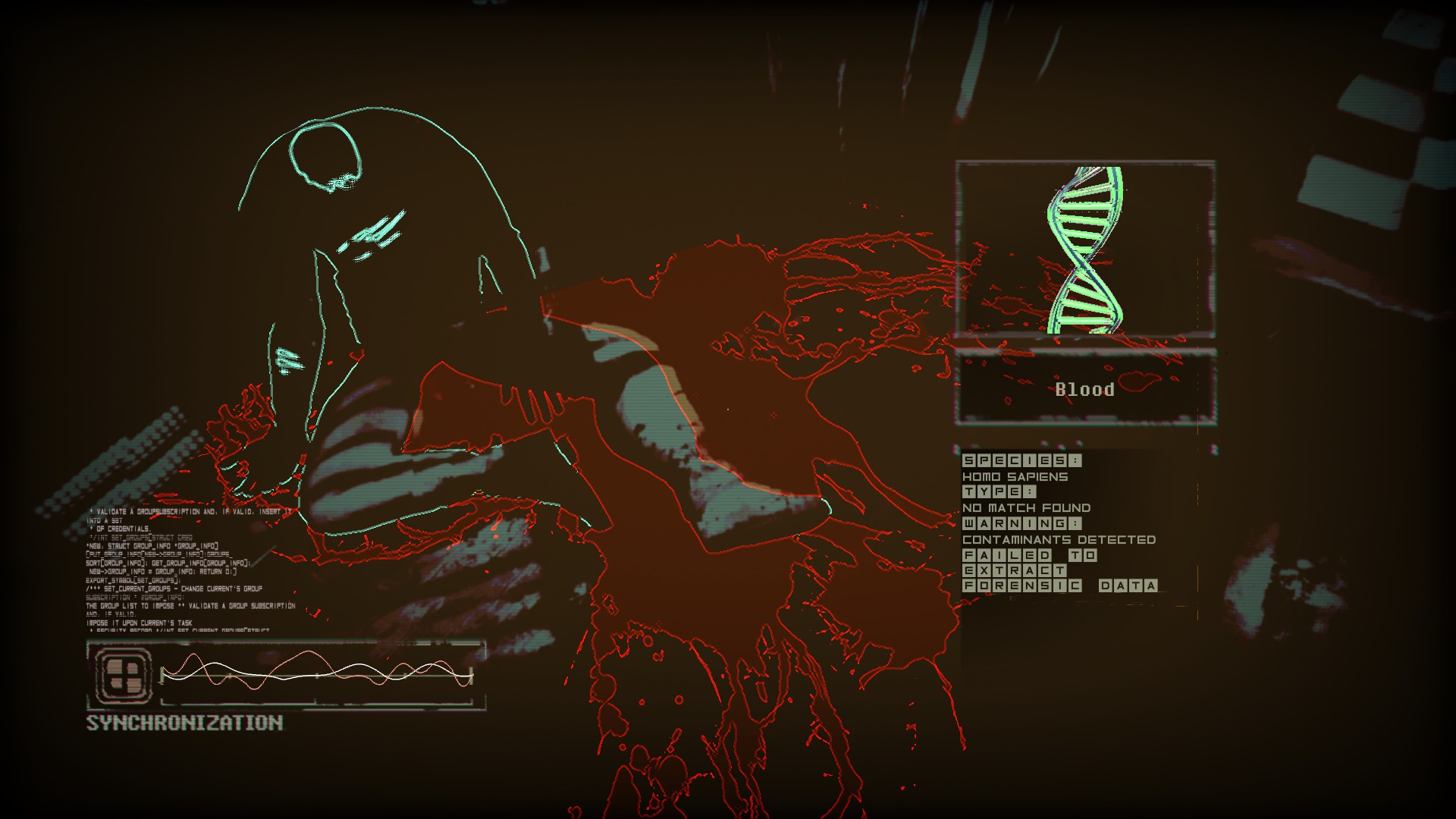
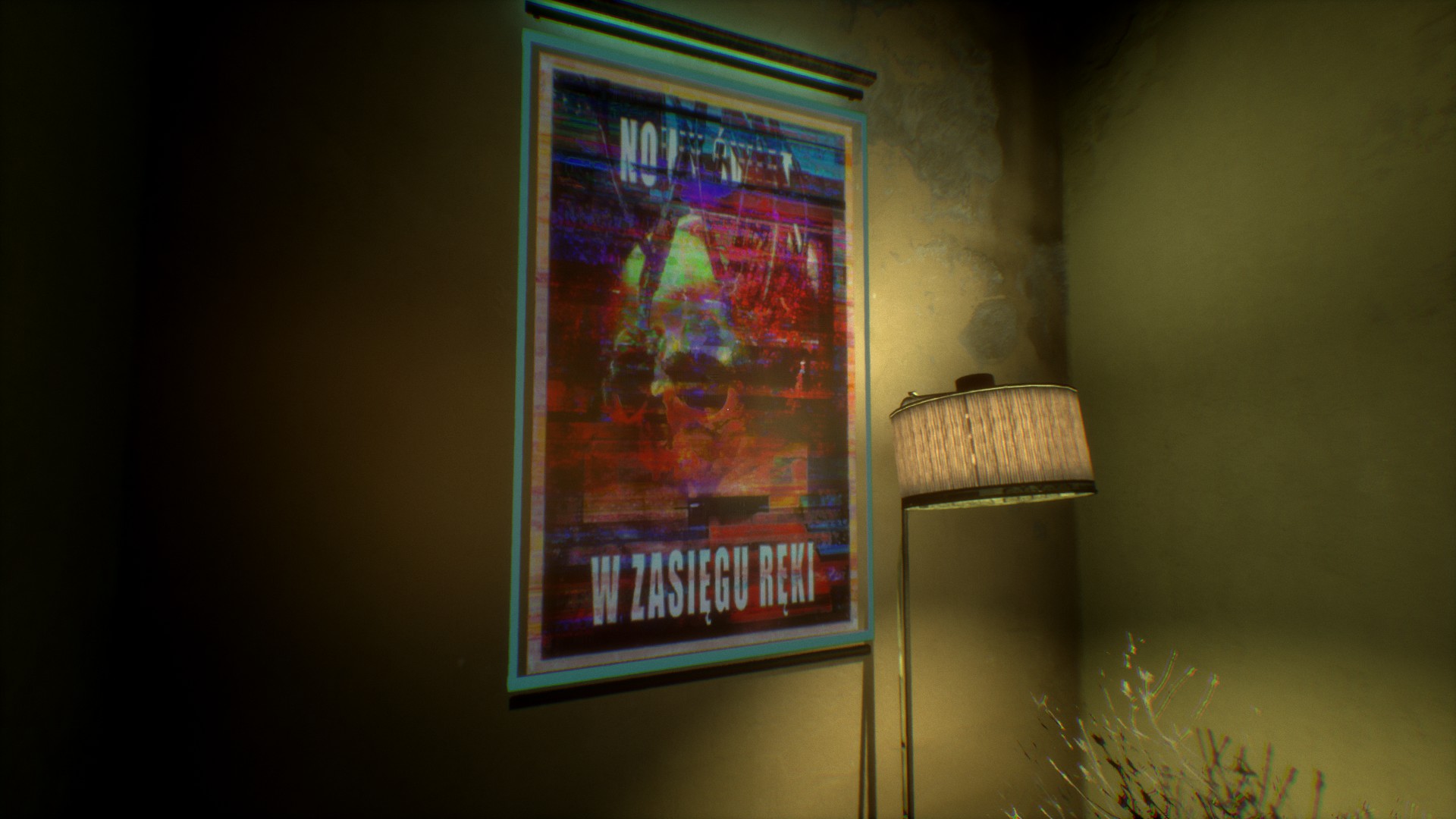
To pictures, even holographic ones, there is no peace even here.
And unfortunately, there are episodes that are frankly bad, when any hints of the above disappear. That same psychedelic trip that Layers of Fear did so well and from which its refined relative suffers just as much.
The thing is, Comrade Lazarski is not just an ordinary policeman, but one with a device for peering into other people’s minds. Strictly for professional purposes, of course. If the old-fashioned way of reconstructing the crime scene doesn’t work, Daniel connects to the chip on the nearest witness or victim’s neck and embarks on a hurricane trip through their consciousness. Considering the personalities that inhabit the slums of the game’s Krakow, there is nothing good to be expected there.
It must be admitted that Layers of Fear was much more logical and consistent in this regard. When reality slipped from under your feet, it was accompanied by the motive of a journey through the artist’s deranged inner world. When paintings appeared on the screen or the house decor changed, they were often symbols, elegant allusions to the hero’s hidden fate, which remained concealed until the very end. The game, although it represented an endless stream of madness, had some intrigue, a narrative weight, so to speak.
The digital nightmare inserts in Observer are pure showmanship. A deliberate and senseless accumulation of grotesque images, generously drenched in special effects, which are more often abused than used as intended here. Yes, certain scenes are truly memorable thanks to their vivid presentation (such as the childhood memories of one of the characters), but there are far more cases where you have to feel your way through a simultaneously glowing, floating, screaming, and chaotically pulsating mess without any meaningful content.
Oh, and yes, you’ll also be forced to run away from monsters. Traditionally lousy horror stealth, to which the basic mechanics of the game don’t even attempt to adapt, have been included here – fortunately in noticeably smaller proportions than usual. The developers must have realized that not many people would endure such torture.
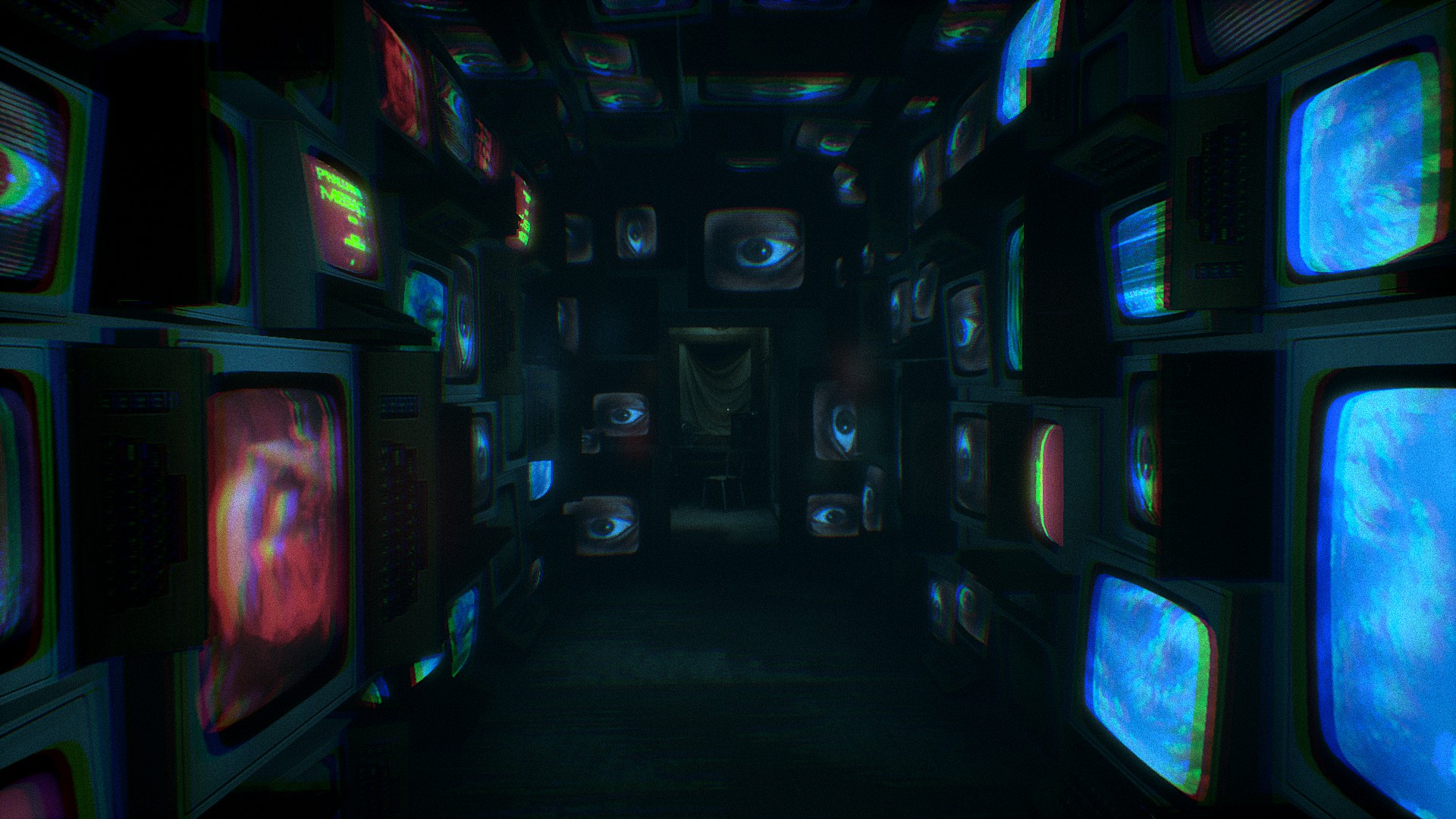
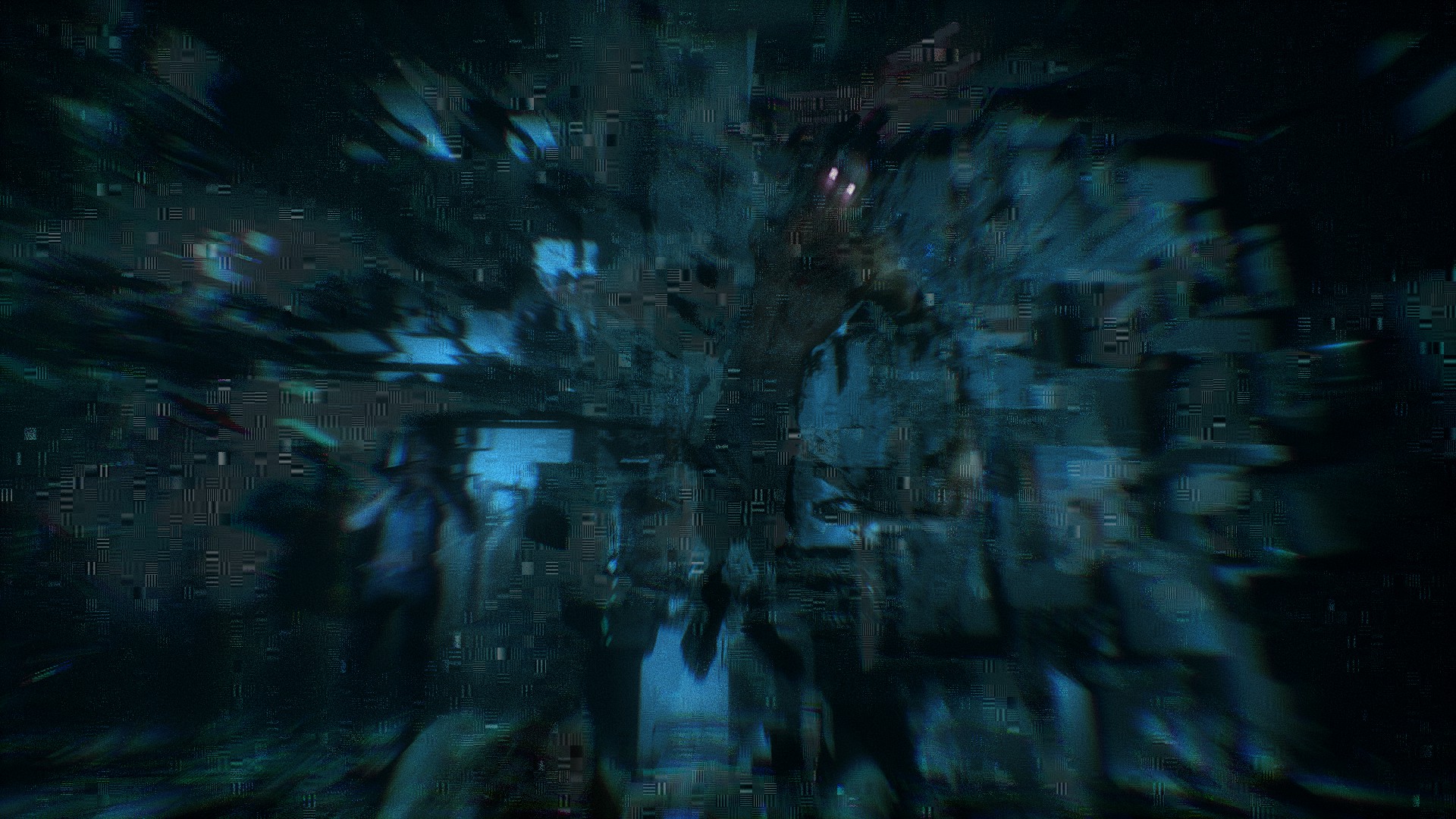
Here it is, the real “Confusion”
In addition to everything, the gimmick with “viewing” the memories of each encounter is an extremely lazy narrative move for a detective, which Observer periodically wants to appear as. Lazarski has a quite pragmatic (by the standards of 2084) toolkit for scanning evidence, but it is needed in only 10% of situations, the rest of the time it hangs as an unnecessary appendage. The elderly psychonaut will still eventually delve into another chip and see all the spoilers with his own eyes, no matter what.
As a result, many plot twists seem unnatural and forced – because you don’t solve the mystery yourself, but draw ready-made facts from a less interactive video feed. If the game had a full-fledged, carefully crafted detective storyline, it would be much more interesting to make your way to the finale.
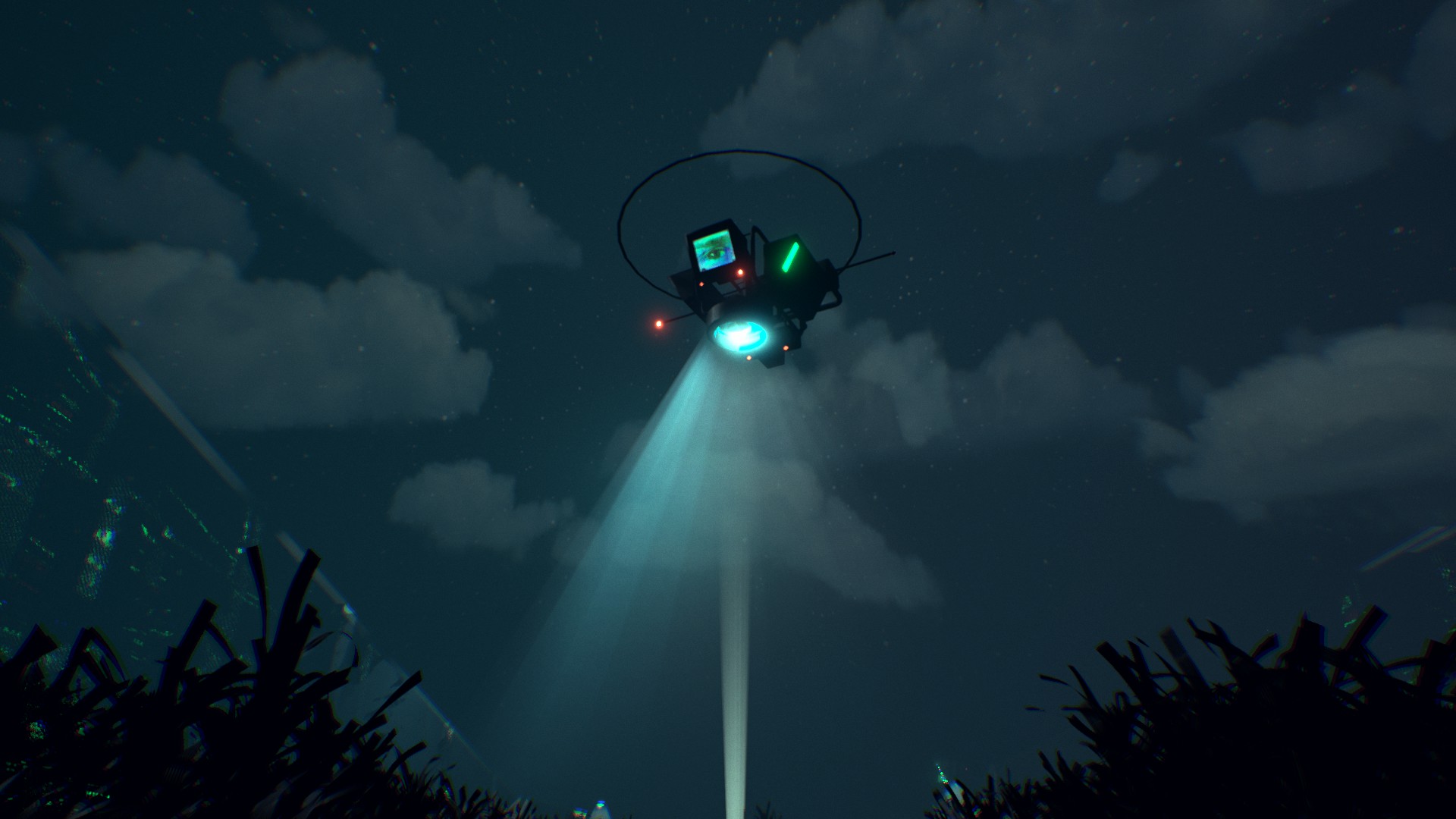
In general, it turned out strange. Like Rutger Hauer, who ran his own on the blades in voicing the protagonist, Observer hits the mark directly at times, and shamelessly fakes, causing drowsiness mixed with bewilderment. Conceptually, artistically, and aesthetically, the new game by Bloober Team is clearly more mature than its predecessor – but the lack of equally witty game design discoveries capable of reinforcing good intentions is felt even more keenly.
Nevertheless, the first swallows of intellectual horror continue to successfully take off, and this cannot but rejoice. One wants to believe that this is indeed a new vector of genre development that many will adhere to.
Share
Discuss
More Reviews



